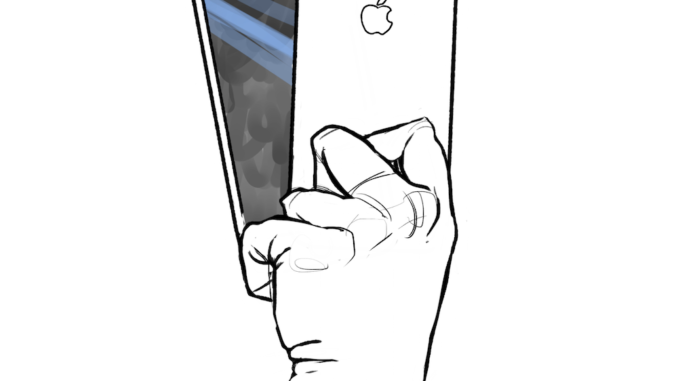
By Hanna Merzbach
In late December, Director of Student Activities Jason Feiner discovered fraud on the office’s club credit card history: two iPhones had been purchased without permission. At the Spring All-Student Organization meeting Jan. 25, Feiner informed the many organization leaders present of this incident.
Feiner said that the identity of the purchaser has not been confirmed. All clubs have access to these credit cards as they provide a simple way to spend their budgets. In the past, these cards have been available for checkout.
“Large purchases are always confirmed in advance before a card is used (i.e. airline tickets for example),” Feiner said via email.
Feiner came across the unauthorized purchase when inspecting the monthly credit card bill. Apple then assisted by deactivating the devices through their serial numbers.
“The bank didn’t charge the College,” Associate Vice President for Finance/Controller Andrea Dooley said. “The college didn’t pay for the phones, so usually if you have a card program like this, it’s insured. If the transaction wasn’t initiated by us, we don’t have to pay for it.”
These “Purchasing Cards” (P-Cards) are operated through Bank of America. Institutions like Lewis & Clark frequently use these types of college-issued cards to streamline budgetary processes.
“Basically, the club credit card is used for people who are either doing big purchases or don’t want to deal with reimbursement forms,” ASLC Treasurer William Witmer ’20 said. “It’s just a simplicity thing. You go to the store and use that credit card and then you are done.”
Since this incident occurred, cards can no longer be checked out to be used on personal computers; all online purchases must be made in the Student Activities office under staff supervision. Local purchases, like those at Fred Meyer, are still allowed but limited: the card must be returned with receipts and a credit card worksheet must be filled out that same day.
“It might be one more form that you have to turn in, but it is so we know that you’re not buying iPhones,” Witmer said. “We want to make sure that people are being more accountable and that is what all the rules are set up for.”
While the result of this event may be limiting the credit cards’ usage, Dooley saw this as an example of the P-Card program’s success.
“We have controls in place that make sure that all the transactions that happen are evaluated and made sure that they are appropriate,” Dooley said. “So, from a broad P-Card perspective, we aren’t planning on changing anything because I think this is a really good example of how the process worked.”
Subscribe to the Mossy Log Newsletter
Stay up to date with the goings-on at Lewis & Clark! Get the top stories or your favorite section delivered to your inbox whenever we release a new issue.

Leave a Reply